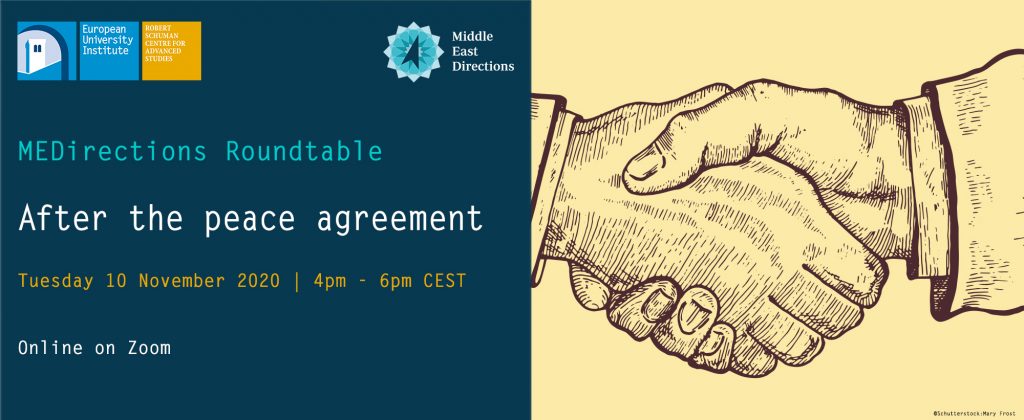
Do peace agreements necessarily mean the end of conflicts?
An essential first step to ending civil conflict is the signature of a peace agreement between rival factions. Although such arrangement may contribute to the immediate end of conflict and reestablishment of state functions, more discussion on an agreement’s impact on social and political life is needed.
To what extent do peace agreements address root causes of conflict and ensure the sustainability of peace? In practice, what kind of peace agreements are most commonly agreed upon and what are the conditions for their success?
This roundtable will discuss the complexity of what comes after peace agreements and reflect on the short and long-term effects of their implementation. It will bring together speakers with extensive academic and direct policy experience of conflict resolution processes in countries such as Afghanistan, Colombia, Myanmar, and others. The roundtable aims to provide relevant inputs to analysts and practitioners interested in conflict resolution efforts in Libya and in the broader MENA region.
Moderator:
Virginie Collombier (Middle East Directions Programme)
Speakers:
Mariano Aguirre is an Associate Fellow at Chatham House (London) and Fellow at the Friedrich Ebert Foundation’s Latin American Network on Inclusive Security. Prior to that, he was the Senior Advisor to UN Colombia and Director of the Norwegian Center for Conflict Resolution (NOREF). Mr. Aguirre is also a Professor at the Institute for Human Rights at the University of Duesto, the Castilla-La Mancha University and the School of Culture of Peace-Barcelona Autonomous University, Spain.
Ambassador Roland Kobia is the EU Special Envoy for Afghanistan and has 30 years of experience in foreign policy including conflict and transition countries, peace processes, formal/informal negotiations, development and humanitarian aid, political dialogues and mediation, and state-building and regional security. Previously, he served as the Ambassador of the European Union to Myanmar (2013-2017) and Azerbaijan (2009-2013) among other diplomatic appointments. He has also led a parallel academic career, as a professor at the University of Montpellier 1, at the Free University of Brussels (ULB) and the European Institute of Ghent.
Professor Roger Mac Ginty is Professor of Defence, Development and Diplomacy at Durham University, and Director of the Durham Global Security Institute. He edits the journal Peacebuilding and directs the Everyday Peace Indicators project. His interest is in the interface between top-down and bottom-up approaches to peace.
Everyone is welcome to attend.
*The Zoom link and access details will be provided only to registered participants. Zoom links are provided on the day of the event.



